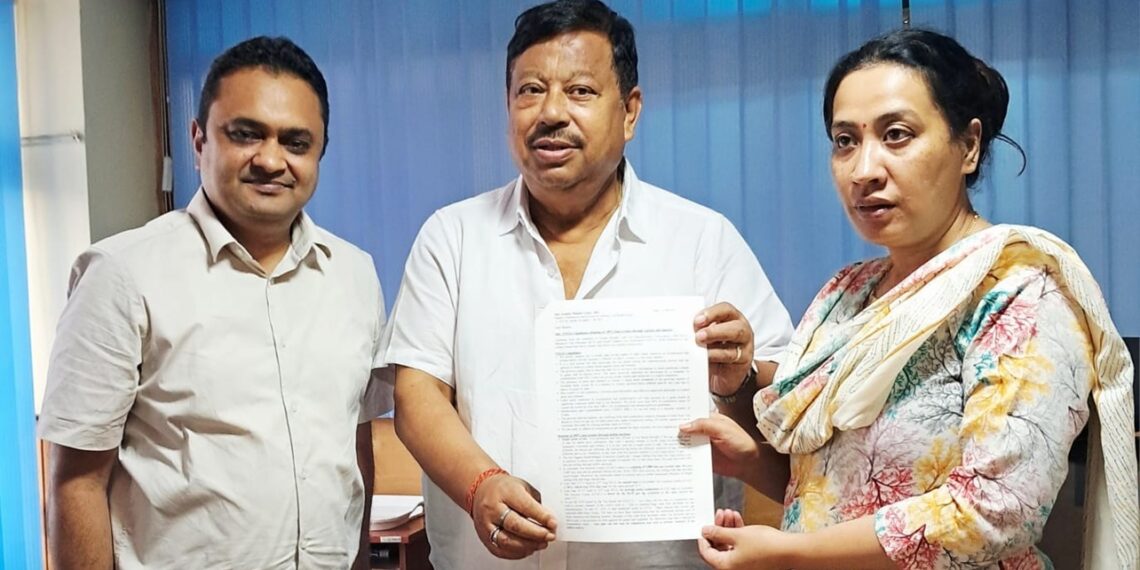Guwahati: Leading tea industry associations from Assam have urged the Tea Board of India to address pressing issues related to pesticide compliance, auction regulations, and rising imports, warning that the current policies could severely impact the sector’s viability.
A delegation representing the Assam Bought Leaf Tea Manufacturers Association (ABLTMA), Bharatiya Cha Parishad (BCP), and North Eastern Tea Association (NETA) met Tea Board Deputy Chairperson and Executive Director Arunita Phukan Yadav at the Board’s North Eastern Zonal Office in Guwahati on Wednesday to submit a detailed memorandum.
The industry groups demanded an urgent resolution of compliance hurdles under FSSAI norms, seeking label claim extensions for pesticides Acetamiprid and Imidacloprid.
These chemicals, they argued, are vital for controlling severe pest infestations such as green fly, which continues to devastate plantations in Assam.
“Without cost-effective and approved pest control solutions, growers face huge financial losses. Extending label claims will resolve more than 90% of compliance challenges,” the memorandum stated, adding that these chemicals already have Codex MRLs recognised internationally.
The associations also criticized the Tea Board’s earlier communication to the FSSAI mandating compulsory testing for six off-label pesticides, terming it “over-regulation,” and demanded that the letter be withdrawn.
Another major point of contention was the Tea Board’s recent directive requiring 100% of dust tea grades to be sold through public auctions.
The associations said this policy has worsened financial stress for manufacturers by causing unsold inventory, delayed cash flow, and higher storage costs.
According to the memorandum, unsold tea stock at the Guwahati Tea Auction Centre (GTAC) has surged to 41% this year compared to 25% last year, while average prices have dropped by over Rs. 22 per kg.
“Forcing tea producers to route dust grades only through auction goes against the principle of ease of doing business and is detrimental to market dynamics,” the industry bodies said, adding that private sales are transparent and legally compliant.
They also questioned Tea Board’s claim that auctions have improved prices, calling the data “misleading,” and urged the immediate withdrawal of the July 25 order mandating 100% auctioning of dust grades.
The memorandum highlighted the sharp rise in tea imports, which doubled to 50.14 million kg in 2024-25 compared to the previous year, with significant volumes coming from Kenya and Nepal.
ALSO READ: Assam LoP seeks human rights probe into newborn death at GMCH
Industry leaders expressed alarm that Nepalese teas, which enter India without import duty, pose a threat to domestic producers.
They also raised concerns about discrepancies between Kenyan export data and India’s official import figures, suggesting possible loopholes or irregularities.
The associations proposed the creation of a task force to monitor imports and prevent market distortions.
They further recommended introducing traceability software to track imports and re-exports in real time.
The memorandum concluded by urging the Tea Board to act as a facilitator rather than an enforcer of over-regulations, stressing that the current auction mandate and unchecked imports could cripple the Assam tea sector.















